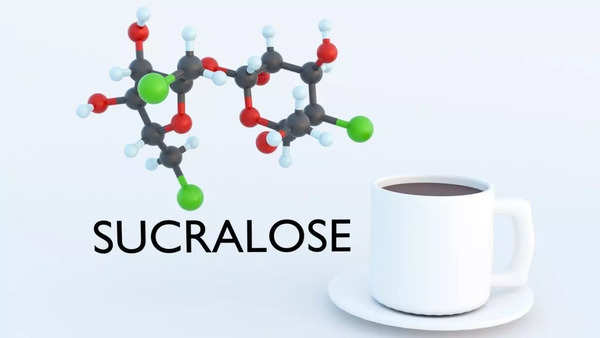How artificial sweeteners mess with your brain and make you eat more; what a study found – The Times of India

Artificial sweeteners are widely trusted by diabetics and weight-watchers across the globe for managing calorie intake and preventing blood sugar spikes. But they may be indirectly tricking your brain into eating more, thus contributing to obesity, instead of preventing it.
A new study published in Nature Metabolism done by researchers of University of Southern California analysed 75 participants with different body weights and their responses were recorded after consumption of water, a sucralose-sweetened drink, or a sugar-sweetened drink on three separate occasions.
The study found that artificial sweetener sucralose messes with a brain region responsible for controlling hunger, especially in people with obesity.
Artificial sweeteners are sugar substitutes that provide sweetness without the calories or nutrients found in natural sugars.
Added sugar can add to the obesity woes, as it increases calorie consumption. The American Heart Association suggests men to consume 9 teaspoons and women to have 6 teaspoons of added sugar every day. However, on an average Americans are having 17 teaspoons daily.
Artificial sweeteners that are many times sweeter than sugar but very low in calories are considered effective substitutes for sugar, with their promise to control weight gain and manage blood sugar.
Sucralose, commonly known as Splenda, and found in diet sodas, baked goods, and chewing gum is 600 times sweeter than sugar and calorie-free, however, as per this new study, it has some hidden side effects on your brain function.

How your brain responds to Sucralose
While earlier studies have found a link between calorie-free sweeteners and obesity, the exact mechanism on how they affect brain and hunger in humans have not been analysed extensively.
The 75 participants that participated in the study had water, a sucralose-sweetened drink, or a sugar-sweetened drink on three different times.
Here’s what the researchers found in brain activity of people when they had sucralose, and compared it to the changes in brain upon sugar consumption.
Researchers found that consuming the artificial sweetener increased brain activity in the hypothalamus, the area responsible for managing appetite. This resulted in an increase in hunger, especially in people with obesity.
It was also found that sucralose increased connectivity between the hypothalamus and other brain regions linked to motivation and decision-making.
How artificial sweeteners affect the brain
Sucralose confuses the brain by providing a sweet taste without the caloric energy, said Dr. Kathleen Alanna Page, the study’s corresponding author and director of the USC Diabetes and Obesity Research Institute.
This can change your cravings and eating behavior.
“If your body is expecting a calorie because of the sweetness, but doesn’t get the calorie it’s expecting, that could change the way the brain is primed to crave those substances over time,” she said.
Effect of sugar on body and mind
Having added sugar, increased blood sugar levels and triggered the release of hormones like insulin and glucagon-like peptide 1 (GLP-1), which helped regulate hunger. However, having sucralose had no such impact on the hormones, which may have led to increase in hunger.
“The body uses these hormones to tell the brain you’ve consumed calories, in order to decrease hunger,” the researcher said. “Sucralose did not have that effect — and the differences in hormone responses to sucralose compared to sugar were even more pronounced in participants with obesity.”
Women experienced greater changes in brain activity compared to their men.




